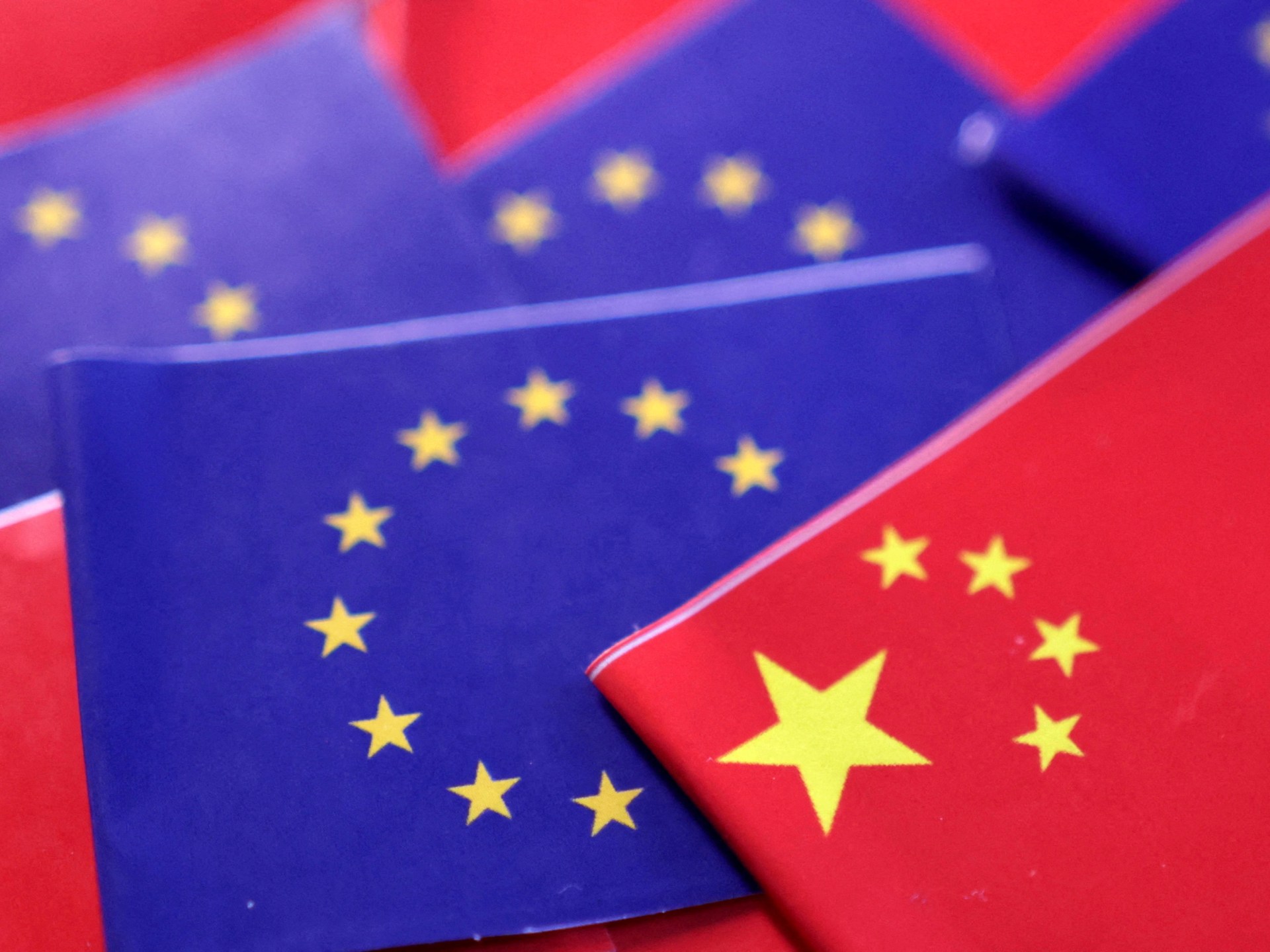The United States must preserve the ability of our greatest tech companies to compete globally.
Joe Biden’s legacy Federal trade Commission (FTC) has commenced its antitrust trial against Meta. Now, the specter of a company breakup, specifically the forced sale of Instagram and WhatsApp, looms large. While its stated goal is to curb monopolistic practices and foster competition, the FTC’s approach risks undermining America’s national security, economic strength, and technological leadership on the global stage.
At a time when the United States is locked in a fierce rivalry with China for tech supremacy, dismantling one of our most successful homegrown innovators would hand a strategic victory to Beijing. Moreover, such a move would run counter to President Donald Trump’s trade agenda, which prioritizes American economic resilience. The FTC must reconsider its strategy before it inflicts lasting damage on America.
Meta, which owns an ecosystem of apps like Facebook, Instagram, and WhatsApp, is one of America’s great innovators. These platforms collectively serve billions of users worldwide, providing unparalleled communication, commerce, and cultural influence. Instagram, acquired in 2012 for $1 billion, and WhatsApp, purchased in 2014 for $19 billion, have flourished under Meta’s stewardship.
The tech competition between the United States and China is the most critical scientific race of our time, with our national security hanging in the balance. Unlike China, which has massive state-owned enterprises and government research projects, the United States is almost entirely dependent on its private sector companies to compete.
America’s tech champions like Meta are critical to maintaining our edge in the development of future technologies where China is aggressively investing to surpass us. Forcing Meta to divest Instagram and WhatsApp would fracture its global scale, handing China’s SOEs and even its “public” companies like ByteDance and Tencent, a decisive advantage.
These CCP-run firms, unhindered by forced breakups and bolstered by state support, would dominate global markets, leaving the United States trailing in innovation and influence. Meta’s platforms are not just social networks, they are vital infrastructure for research and development and avenues for spreading American values to counter China’s authoritarian tech ecosystem.
Breaking up Meta would also signal to the world that U.S. tech is a target even in America. This step will invite harsher regulations abroad, like digital services taxes and forced data disclosures, that drain resources from American tech firms far beyond Meta. The proliferation of taxes, regulations and anti-trust fines would cripple America’s ability to innovate, as revenue losses from divestitures and penalties limit investments in critical technologies. Research and development at scale on AI that powers defense systems, quantum tech that secures communications, and 5G networks that underpin military and economic resilience, will slow dramatically.
The Biden administration holdovers at the FTC, by breaking up Meta would send a clear message to their globalist regulator friends in Brussels and elsewhere that it is “open season” on America’s biggest companies. This approach mocks President Trump’s “America First” trade policy by telling the EU, for example, whatever funds you lose paying increased U.S. tariffs, you can just reimburse yourself with money from Uncle Sam’s other pocket through anti-trust actions against American Big Tech.
Meanwhile, China’s tech giants, free from such constraints, would surge ahead, capturing markets and setting global tech standards. Chinese apps like WeChat or Douyin would lead on the global stage. The EU or other regulators never mess around with Chinese companies because the CCP doesn’t tolerate such interference.
Proponents of the breakup argue that Meta’s size stifles competition, but this claim ignores the broader context. The tech landscape is not a zero-sum game confined to U.S. borders; it’s a global battlefield. Instagram and WhatsApp didn’t languish under Meta, they thrived, outpacing rivals and innovating at scale. Smaller competitors like Snapchat, Signal, and Telegram exist and are growing, too. China’s TikTok is a behemoth, proving that Meta’s scale doesn’t preclude a dynamic market. The real threat to competition isn’t Meta’s integration, it’s China’s state-subsidized giants, which face no such antitrust scrutiny and operate globally with impunity.
The punitive dismantling of American tech leadership is not the 1970s breakup of Bell that FTC bureaucrats want to go back to. Instead, it is a flawed strategy that will lead to America losing the tech race to our greatest adversary. The United States must preserve the ability of our greatest tech companies to compete globally. For the sake of national security, economic vitality, and Trump’s America-first agenda, the FTC must abandon its breakup crusade. U.S. tech leadership is America’s strength—let’s not squander it.
About the Author:
Ambassador Robert C. O’Brien (Ret.) was the twenty-seventh National Security Advisor of the United States (2019–21) and is the Chairman of American Global Strategies. He has been appointed to serve on the President’s Intelligence Advisory Board (PIAB) in President Donald Trump’s second term.
Image: Novikov Alexey / Shutterstock.com.


